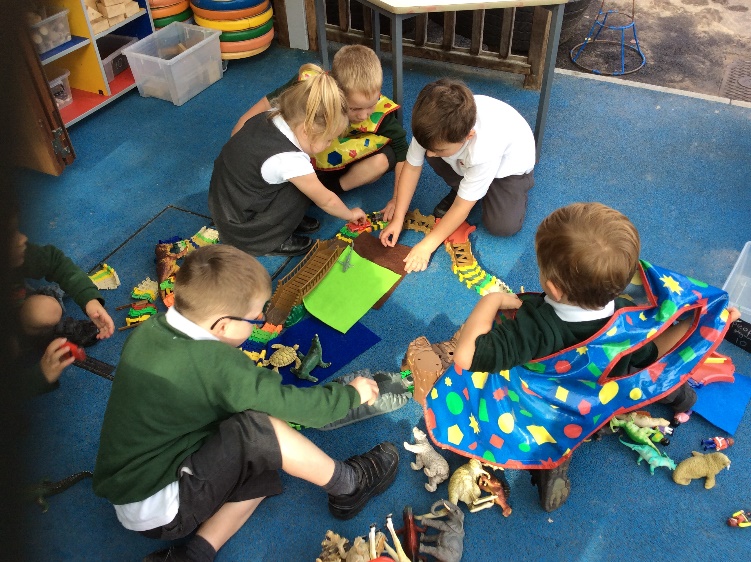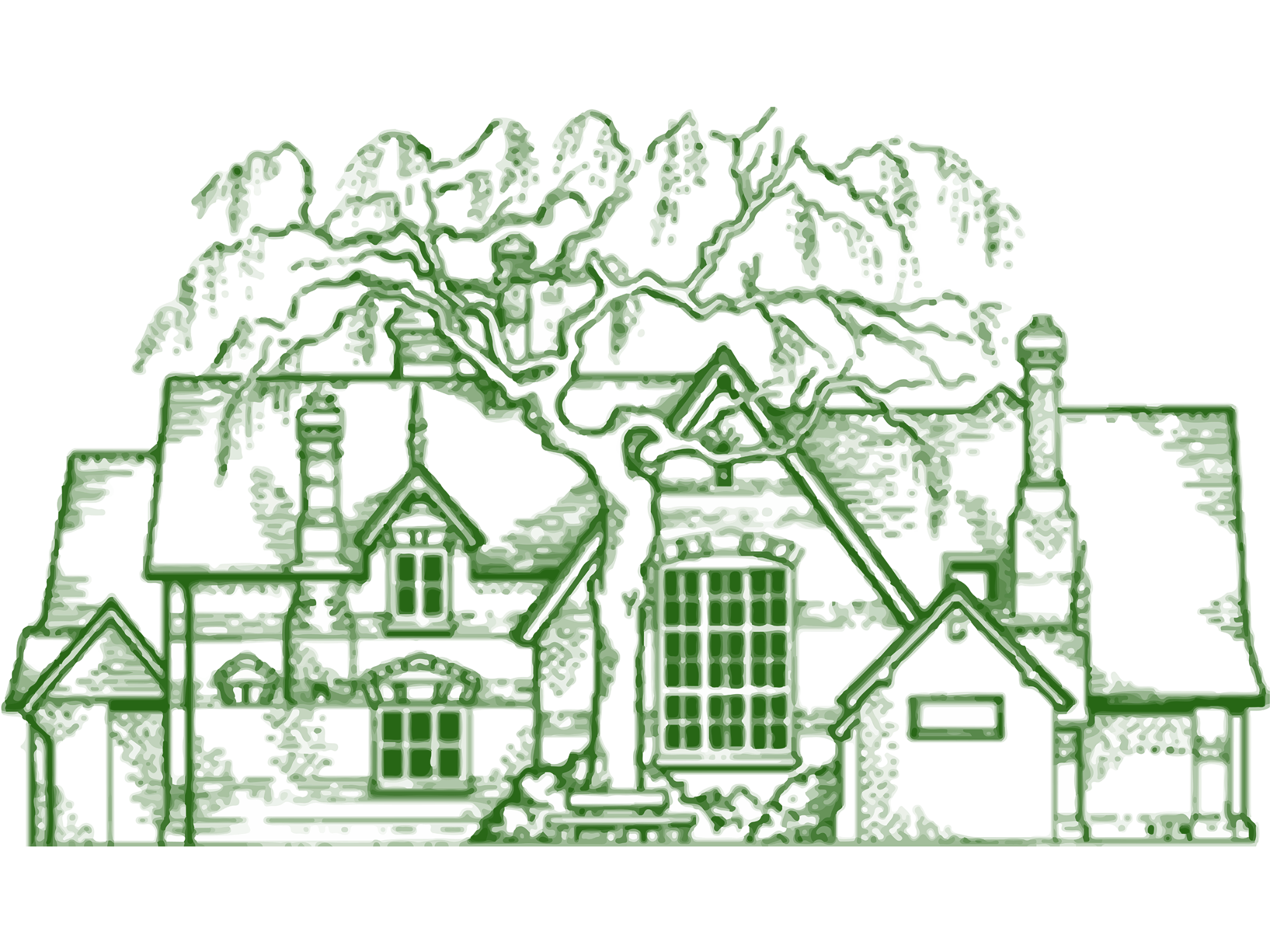Early Years Foundation Stage Curriculum
CHERITON PRIMARY SCHOOL
Early Years Foundation Stage Policy

Children learn and develop more from birth to five years old than at any other time in their lives. If children are at risk of falling behind the majority, the best time to help them to catch up and keep up is in the early years. Every child can make progress, if they are given the right support. ‘When we give every child the best start in their early years, we give them what they need today. We also set them up with every chance of success tomorrow.’
Development Matters 2021
Aims
At Cheriton Primary School we endeavour to meet every child’s entitlement to develop a love of learning that will enable them to have the best possible future life chances and develop skills for life. No child gets left behind.
The Curriculum
Our curriculum is based on the Early Years Foundation Stage (EYFS) Statutory Framework, which is available from the school office or to download at
Cheriton Primary School Progress Curriculum
We have adapted our curriculum to the needs of our cohort and have combined the framework, programmes of study and typical child development to produce four curricular goals, broken down into a series of milestones which ensure that there is full curriculum coverage over the year and that no child falls behind.
Our child-centred curriculum is based on a triangulation model which offers a broad and balanced curriculum based on three main elements.
- Teaching and learning based on the needs of our cohort and their interests which is play-based and takes place indoors and outdoors.
- Adult initiated experiences (guided learning) e.g. phonics, Maths, PE and Forest School.
- Our four curricular aspirations for the children
Characteristics of Effective Learning
The EYFS also includes the characteristics of effective teaching and learning. The Reception teachers plan activities within the Reception classrooms with these in mind. They highlight the importance of a child’s attitude to learning and their ability to play, explore and think critically about the world around them. The three characteristics:
Playing and Exploring
Playing and Exploring is all about how the child engages in learning. It can be broken down into three further areas:
- Finding out and exploring
- Playing with what they know
- Being willing to ‘have a go’
Active Learning
Active learning centres on how the child is motivated in their learning. It covers three main areas:
- Being involved and concentrating
- Keeping on trying
- Enjoying achieving what they set out to do
Creating and Thinking Critically
This characteristic is all about children thinking, making choices, seeing connections between different skills and making sense of their experiences and interactions. It looks at how children are able to adapt their approaches when they cross stumbling blocks and how they link ideas and previous experiences. It covers the following three areas:
- Having their own ideas
- Using what they know to learn new things
- Choosing ways to do things and finding new ways
Our curricular goals
We support all children to achieve these 4 goals during their time in Reception at Cheriton Primary School.
Some children need more support to get started on a goal than others and some children need steps towards the milestones to be broken down further to keep progressing.
We aim for all children to work towards the same curricular endpoints with termly milestone “checkpoints” to ensure that any support needed is identified and quickly planned for.
Exceptionally, children with complex needs may have a more individualised curriculum to meet their needs.
4 Curriculum goals
- To have an understanding and respect for the diversity of our world.
- To guide an adult through a Forest School session.
- To compose and publish my own piece of fiction or non-fiction.
- To independently follow a recipe to bake bread.
Role of staff and key worker
Each child in the setting is designated a Key Worker; this could be either the Class Teacher or Teaching Assistant. Their role is to help ensure that every child’s care is tailored to meet their individual needs and to help the child become familiar with the setting, offer a settled relationship for the child and build a relationship with their parents. All adults within the Early Years setting actively seek to form positive respectful relationships with the children in their care. The formation of healthy relationships between adults and children is essential in enabling children’s well-being now and their future successes.
Adults support the curriculum by resourcing this well, and structuring the learning environment and routines. They also support through high-quality interaction: conversation, vocabulary, sustained shared thinking. Adults guide children’s play towards the skills, concepts and vocabulary that will enrich their learning, and prepare them well as they progress through the school.
Partnership with parents and carers
We believe that parents and carers are a child’s first educator and therefore work very closely to ensure they are involved in what we do with their child at school. We want parents to feel they can speak to us about their child at any time and feel comfortable in our setting. As well as home visits and Come and Share days, we offer a Meet the Teacher session at the beginning of the school year and offer parenting workshops and other sessions for parents.
Home/school links
When a child gains a place at Cheriton Primary we ask them to attend three sessions at the school alongside all other children who will be starting and with their parents. We visit children in their homes and have a slow, staggered entry into Reception to aid a smooth transition into full time schooling. Parents are also invited to a parents’ meeting so the settling in can be reviewed.
Health & safety and safeguarding
Children learn best when they are healthy, safe and secure, when their individual needs are met, and when they have positive relationships with the adults caring for them. We follow the safeguarding and welfare requirements detailed in the Early Years Foundation Stage Statutory Framework (2017)
Our safeguarding and welfare procedures are outlined in our Child Protection Policy
https://www.cheriton.hants.sch.uk/page/?title=Policies+%26amp%3B+Key+Documents&pid=28
It is important to note that members of staff do not use their mobile phones or personal handset devices in the classroom and are prohibited from taking photographs with their personal handsets. This is in line with Cheriton Primary School’s Safeguarding Policy. Members of staff do, however, use school iPads to take photographs as evidence to support the regular observation assessment cycle in the EYFS. These photographs are used in class displays, weekly newsletters sent only to families of the children in the class and on the school website. All parents are asked to state if they give permission for their child’s image to be used on the school website through the paperwork in their initial starter packs.
We are a healthy school and our children receive free fruit and milk from a Government scheme.
